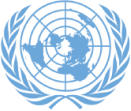SECURITY COUNCIL
OPEN DEBATE
WOMEN, PEACE AND SECURITY: THE ROLE OF WOMEN IN
CONFLICT PREVENTION AND RESOLUTION IN AFRICA
28 MARCH 2016
STATEMENT BY H.E. MARIA FILOMENA DE FÁTIMA LOBÃO DELGADO
MINISTER FOR FAMULY AND THE PROMOTION OF WOMEN
Distinguished Briefers,
Members of the Security Council,
Ladies and Gentlemen,
It is a great honor to address the Security Council, on behalf of the Government of the Republic of Angola, and offer some insights on the important issue of “Women, Peace and Security”, with particular emphasis on the role of Women in Conflict Prevention and Resolution in Africa.
I would like to express my gratitude and appreciation to the briefers for their significant contributions on the subject matter under consideration. I welcome the United Nations Under-Secretary-General and Executive Director of UN-Women, Ms. Phumzile Mlambo Ngucka; the Assistant Secretary General for Political Affairs, Mr. Taye Brook Zerihoun; the Chairperson of the Peacebuilding Commission, Ambassador Macharia Kamau; Ambassador Tete Antonio, Permanent Observer of the African Union; and Mrs. Paleki Ayang of the South Sudan Women’s Empowerment Network.
Members of the Security Council,
Ladies and Gentlemen,
The African Continent is still engulfed in some conflict situations, some of them dragging for more than a generation: civil strife and fratricide conflicts that have greatly affected the social, economic and human development of the continent.
Besides the colonial legacy, policies of social and political exclusion, coupled with widespread economic inequalities and violations of human rights, are relevant root causes of these conflicts.
Such situations turned out to be a heavy burden, primarily to the civilian populations of the countries affected; and to the international community, which was required to intervene in order to contain spill over effects of these conflicts.
It is universally understood that prevention is the most effective way to avoid the human, social and financial costs caused by conflicts; it is also understood that the best means to prevent conflict is to build societies based on principles of inclusivity, with equal rights awarded to all citizens, without exclusion or discrimination, and with the prevalence of the rule of law.
It is also understood that the resolution of conflicts should take place through channels of dialogue, mediation and compatibility of diverging interests, only possible where dialogue and mediation lead to meaningful compromise, and everybody has their interest safeguarded.
Members of the Security Council,
Ladies and Gentlemen,
The Security Council is currently dealing with a large number of these conflicts, by deploying military means through peacekeeping operations, after the signing of peace deals, to manage post-conflict situations; the Security Council has also established a number of political special missions, of a preventive nature, and the Secretary-General or his Envoys have displayed good offices and mediation efforts, seeking to avert the outbreak of conflicts.
In the search for more effective means to deal with conflict situations,
the Secretary-General has launched in 2015, three major Peace and Security Reviews: The High Level Independent Panel on United Nations Peace Operations, the Advisory Group of Experts for the Review of Peace Building Architecture, and the Global Study on the Implementation of Security Council resolution 1325, on Women, Peace and Security.
The Reviews agreed on the postulate that the greatest responsibility of the international community is the prevention of armed conflict, highlighting the critical need for greater investment in prevention strategies.
The reviews further stressed the value added of the Women, Peace and Security Agenda to conflict prevention, and the potential for early warning in gender-sensitive analysis, by identifying drivers of conflict, such as changing dynamics, namely at family and community level relations.
It also highlighted that conflict prevention can be greatly improved by engaging with women, given their grass roots knowledge, specially in providing relevant indicators for dealing with the threats of conflict and for the implementation of preventive measures.
The Global Study on the implementation of resolution 1325 recognizes the importance of enhancing the role of women, of their participation at all phases and levels of peace processes, given its potential for accelerating the attainment of solutions to conflict and the sustainability of peace.
Women’s participation in prevention and resolution of conflicts may assume diferent forms and dimensions, inter alia, direct involvement in formal peace negotiations; consultative commisions; public policies decision making; national dialogues; peace building and comprehensive reforms, leading to democratization processes.
Additionnaly, besides ensuring the inclusion of gender-sensitive language in peace agreements, women can bring more than gender issues to the negotiating table, by instilling the holistic approach that a peace process entails.
The Global Study refers paradigmatic cases in Liberia, Kenya and Burundi, where women's groups achieved significant results through the exercise of strong influence in the negotiating processes, by exerting pressure for the start and conclusion of negotiations, in some cases mobilizing for the signing of a peace agreement, or alternatively promoting measures to prevent a new cycle of violence, addressing the root causes of conflict, thus contributing to change power relations in society.
Women and children are the main victims in today´s armed conflicts. Hence, their participation in these processes becomes a crucial issue: their voices must be heard, in the prevention of conflict, in the negotiation of peace settlements, and in ensuring that their interests are taken into account in post-conflict reconstruction.
It is of pivotal importance that the institutional mechanisms established in Africa promote an environment conducive to a meaningful participation of women in peace and security, reasserting the full commiting of the African States to this objective.
The African Charter on the Rights of Women, the African Union Declaration on Gender Equality and the Five-year Gender Peace and Security Programe, as well as the emphasis on women's leadership on issues related to peace and security are achievements translating a renewed awareness on the essential role played by women.
Members of the Security Council,
Ladies and Gentlemen,
In Angola women had a decisive participation in all efforts to the attainment of peace.
The immediate post-conflict period counted with women’s direct involvement in peace building and national reconstruction. Women were instrumental in providing psychological support to the victims of the armed conflict, as counselors of peace, national reconciliation and social healing.
The Government established counseling centers to raise awareness on their economic, social, political and civil rights, and as a tool for the families participation in the country’s development.
Through partnerships with civil society organizations, efforts have been deployed in order to strengthen women´s participation in the countries political and economic life.
The NGO, "Peace Roots” was created, aimed at bringing together women from all political parties, represented in parliament, to participate in the efforts to consolidate peace and democracy; Angola joined the Campaign “ He for She” aimed at raising awareness of men and boys to the eradication of all forms of gender based violence.
Angola has been playing a role in the preservation of Peace and Security in Africa, especially in the Great Lakes Region, in promoting the culture of peace, based on the experience gained in conflict prevention processes, in the promotion of dialogue and national reconciliation.
Finally, it is our expectation that the new awareness on the key role women play in social, political and economic life will lead to a world were women can effectively play their responsibilities, and to the full exercise of their rights.
We are sure that if strong political will and commitment are fully brough into action, towards the attainment of such goals, women will give a tangible contribution in building a more just and peaceful world.
I thank you for your kind attention.


